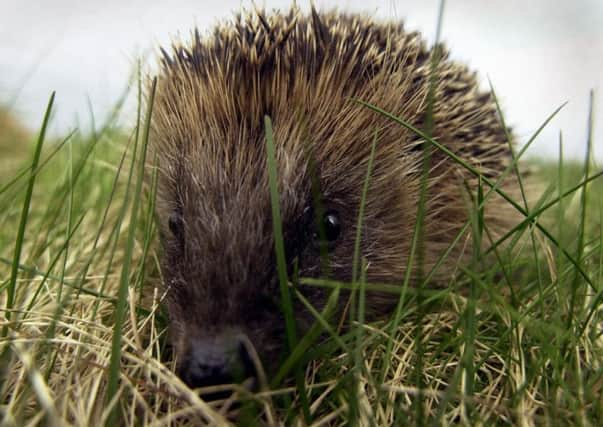Gardens plea over new fall in sightings of hedgehogs


Populations of the species are known to be in a long-term decline with the latest results from the charity’s wildlife survey suggesting that there are now less than one million hedgehogs in the UK.
The survey found that only a third of people in North Yorkshire - 33 per cent - spotted a hedgehog in their garden at least once a month - some 14 per cent fewer than in 2014.
Advertisement
Hide AdAdvertisement
Hide AdThe hedgehog’s decline is largely attributed to a loss of linked habitats, preventing it from reaching food sources but with UK gardens estimated to cover 10 million acres combined, the RSPB believes there is great scope for reviving the species before it is too late.
The charity is urging people to get involved with its ‘Giving Nature a Home’ campaign, by doing at least one action to benefit wildlife in their garden or outdoor space.
Daniel Hayhow, an RSPB conservation scientist, said: “With the right care and attention your garden could become a home to all kinds of different species, and you could have a front row seat to some amazing wildlife shows.
“The UK is home to some fascinating garden wildlife from bugs to butterflies, hedgehogs to house sparrows - our outdoor spaces provide these species with the vital homes they need to survive.”
Advertisement
Hide AdAdvertisement
Hide AdThe RSPB’s wildlife survey produced other interesting results.
Foxes were the third most popular visitor to gardens in North Yorkshire where 16 per cent of people reported seeing one in their garden at least once a month this year.
Stoats, an elusive species, were spotted on a monthly basis by six per cent of people in the region, while grey squirrels remained the most common garden visitor for the third year running, with 67 per cent of participants spotting one scurrying across their garden at least once a month.
Mr Hayhow added: “By providing shelter and a safe place to make a home, gardens provide an invaluable resource and are a key element in helping to save nature, perhaps even playing a pivotal role in reversing some declines.”
To help people create their own wildlife friendly garden, the RSPB has launched a new online tool that will build a personalised ‘nature plan’ that it unique to the individual user.